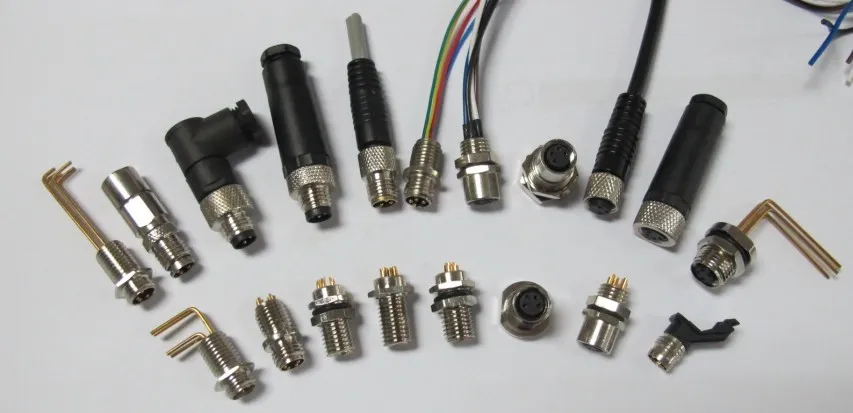Cable connectors play a crucial role in modern industries by ensuring the stability and reliability of electrical systems. Depending on different application scenarios, cable connectors can be essential across various industries. Here is an overview of the applications of cable connectors in key industries.
Automotive Industry
Applications
- Electrical System Connections: Connectors link the battery, alternator, lights, sensors, and control modules in vehicles.
- In-Car Entertainment Systems: Connects audio systems, navigation systems, and other in-car electronic devices.
- Safety Systems: Used in airbag systems, ABS systems, and other safety mechanisms.
Characteristics
- High Temperature Resistance: Automotive environments involve significant temperature fluctuations, so connectors need to withstand high temperatures.
- Vibration Resistance: Vehicles experience vibrations during operation, requiring connectors to be secure and reliable to prevent loosening or failure.
Industrial Equipment
Applications
- Automation Systems: Connectors are used in industrial robots, sensors, and control panels.
- Power Distribution: Connectors distribute power and protect circuits in power systems.
- Data Transmission: Used for high-speed data transfer in data acquisition and control systems.
Characteristics
- Durability: Industrial environments are harsh, so connectors must offer good wear resistance and corrosion resistance.
- High Current Capacity: Industrial equipment often handles high currents, requiring connectors with high current-carrying capacity.
Home Appliances
Applications
- Power Connections: Connectors are used in home appliances like refrigerators, washing machines, and microwaves.
- Control Panels: Connects various function control panels, such as temperature controllers and displays.
- Sensor Connections: Used for temperature sensors, humidity sensors, and other sensors in home appliances.
Characteristics
- Ease of Installation: Connectors in home appliances are typically designed for easy installation and maintenance.
- Durability: Must withstand frequent on-off operations and use.

Aerospace
Applications
- Flight Control Systems: Connectors in aircraft flight control systems and communication systems.
- Navigation Systems: Connects various navigation and radar equipment.
- Onboard Electronics: Includes connectors for engine control and environmental control systems.
Characteristics
- High Reliability: Connectors must be extremely reliable to ensure flight safety.
- Environmental Resistance: Must withstand high pressure, high temperatures, and other extreme environmental conditions.
Medical Equipment
Applications
- Medical Instruments: Used in devices such as ECG machines, ultrasound equipment, and vital signs monitors.
- Diagnostic Equipment: Connects various diagnostic instruments and computer systems.
- Therapeutic Equipment: Includes connectors in laser treatment devices and electrical stimulation devices.
Characteristics
- Precision: Requires precise connections and stable performance to ensure the accuracy of medical equipment.
- Safety: Must meet medical industry safety standards to ensure patient safety.
Telecommunications
Applications
- Network Devices: Used in routers, switches, and servers for network connections.
- Telecom Equipment: Includes connectors for telephone systems and base stations.
- Data Centers: Connectors for high-speed data transmission between various devices in data centers.
Characteristics
- High-Speed Transmission: Must support high-speed data transfer to ensure communication quality.
- Stability: Connectors need to be stable and reliable to avoid communication interruptions.
Cable connectors are vital across various industries, ensuring the smooth operation of diverse equipment and systems. Choosing the right cable connectors can significantly enhance system performance and stability, driving the progress of various industries.

